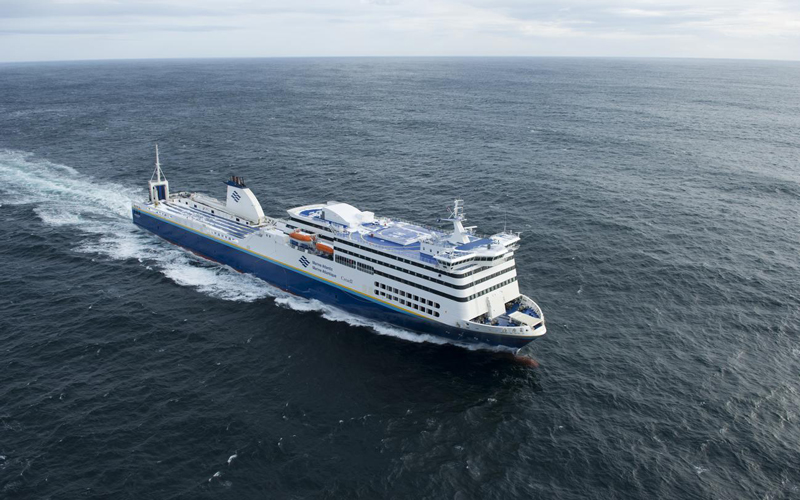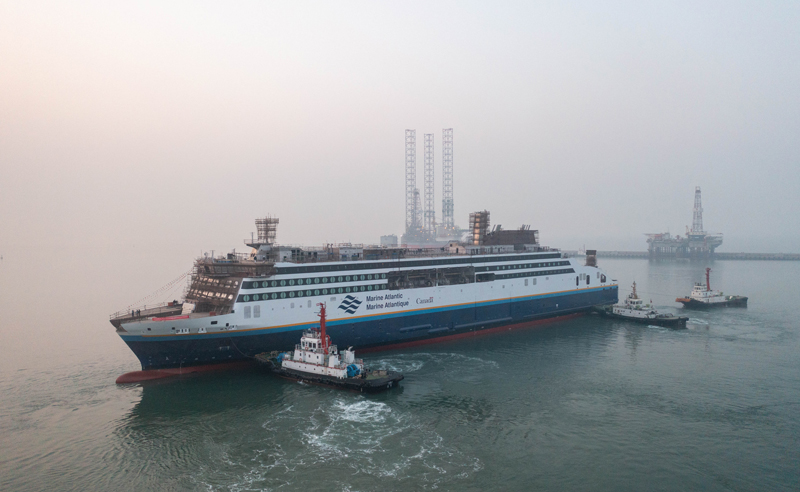Account Login
Don't have an account? Create One

“Just as Marine Atlantic is passing along the impact of increased fuel costs to its customers, we will inevitably have to do the same with our shippers,” he wrote. “Hopefully this increase will not have a noticeable impact on the pocketbooks of Newfoundland consumers.”
However, he made a point to simultaneously praise Marine Atlantic as “a valuable, trusted partner,” describing close collaboration, particularly during the early COVID-19 outbreak and through peak public health restrictions. McKee said the agency worked with the APTA to assure the supply chain between provinces remained intact and functional, while “pulling out all the stops” to make sure drivers remained as safe as possible.
“We are confident (Marine Atlantic) will continue to work diligently to keep cost increases to their customers and commercial partners to a minimum,” he said.
Marine Atlantic announced the fuel surcharge of 13 per cent on ferry passage is heading to 17 per cent, effective June 1. But the increase also comes as part of the introduction of a new approach, where the surcharge—based on the average cost of fuel—will be updated twice per year, on June 1 and December 1. The surcharge, the agency committed, will consistently be applied as it stands at the time of booking, not the time of travel, so customers know exactly what to expect. The corporation is getting away from hedging on fuel and fuel purchases will be reported in detail online. As a whole, the change is, Marine Atlantic stated, “designed to be more transparent and predictable.”
And McKee said his association is reacting positively having a more transparent model moving forward.

“We anticipate fuel consumption could be reduced by up to 50%,” he stated, adding people can also expect to hear about other capital investments in the years ahead that will include exploration of alternative fuels and may lead to further fuel reductions.
Exactly how it all shakes out on bottom line customer costs will depend on the projects and the demands on the agency, but if Marine Atlantic is saving on fuel quantities and costs, consumers are being told they will be able to see it in the public reporting.
“The surcharge is based on recovering approximately 30 per cent of the cost of fuel which factors in consumption and price annually. The fuel surcharge rate is based on the average price of fuel. While not directly tied to consumption, over time if the consumption decreases there will be decreases in the fuel surcharge,” Mercer stated.
Rather than being ignored, the surcharge change was almost immediately a hot topic following the announcement, as Hospitality Newfoundland and Labrador decried Marine Atlantic’s surcharge increase as “deterring travelers from visiting our province and our communities” in Newfoundland and Labrador. It also kicked off the daily question period in the Newfoundland and Labrador House of Assembly. Progressive Conservative MHA David Brazil pressed the provincial government in Newfoundland and Labrador on the subject of cost to ferry users and consumers relying on imports.
In response, premier Andrew Furey highlighted the fact Marine Atlantic is a federal entity.
“We share his concerns with respect to this increase,” Furey continued. “I can tell you we will continue to advocate on behalf of the people of Newfoundland and Labrador.”
Comment policy
Comments are moderated to ensure thoughtful and respectful conversations. First and last names will appear with each submission; anonymous comments and pseudonyms will not be permitted.
By submitting a comment, you accept that Atlantic Business Magazine has the right to reproduce and publish that comment in whole or in part, in any manner it chooses. Publication of a comment does not constitute endorsement of that comment. We reserve the right to close comments at any time.
Cancel